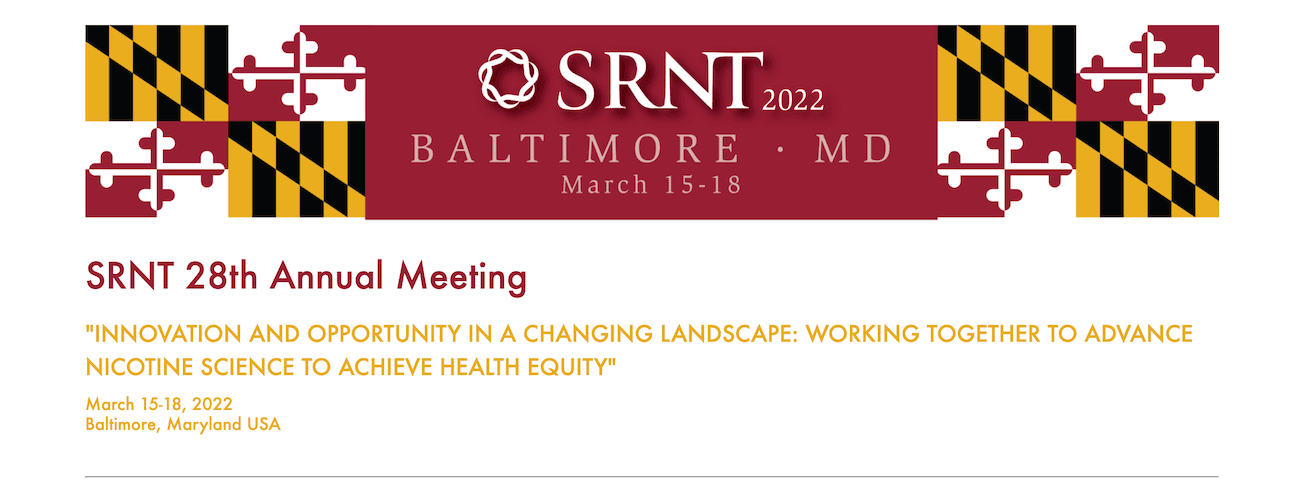The annual meeting of SRNT, the Society for Research on Nicotine and Tobacco, kicks off on March 15. The conference will host a panel of international experts to discuss the latest news on policy, smoking endgame strategies, scientific research and innovation
In the last couple of years, many governments had to review their choices in terms of public health policies due to the pandemic. Today more than ever, it is necessary to give complete and immediate access to verified and accurate information in the field of nicotine and tobacco research.
What are the strategies to adopt? How do the governments react to these information?
Question to be addressed during the SRNT 2022 annual meeting, hosted this year in Baltimore and entitled “Innovation and Opportunity in a Changing Landscape: Working Together to Advance Nicotine Science to Achieve Health Equity”.
The meeting will be in-person and the SRNT will make all those live sessions available online—just not in real time. Presenters unable to travel due to Covid will be able to upload their accepted oral sessions and posters on the conference channel.
There will be presentations on pivotal clinical trials of innovative treatments, smoking endgame strategies, new and synthetic nicotine products, to better understand global perspectives on nicotine and tobacco control.
Researchers will present specific panel on tobacco product regulation, cessation, and tobacco control policy, plus hot topics in the areas of menthol bans, equity impacts of policies, nicotine reduction, smoking, and COVID-19.
On behalf of CoEHAR, the project leader of the REPLICA project prof. Giovanni Li Volti and the co-project leader prof. Massimo Caruso.
The Replica project aim is to replicate three relevant international studies on the cytotoxicity and inflammation induced by cigarette smoke and ENDS aerosol. The primary goal was to establish the reliability of the results and the robustness of the conclusions.
Data from the studies substantiated the significantly reduced cytotoxic effects of ENDS aerosol in respect to cigarette smoke.
However, results were notably different in terms of inflammatory and remodeling activity triggered by smoke, evidencing a triggered effect with a few puffs, rather than with an increasing number of puffs, as reported by the original work.
Taken all together, the data obtained independently in different laboratories clearly confirm the reduced toxicity of ENDS products, both e-cigs (ePen and eStick) and THPs (IQOS and GLO) compared to smoke, thus providing a valuable tool to the harm reduction strategies in smokers.
The conference will end on March 18. To receive more information, visit the link.




